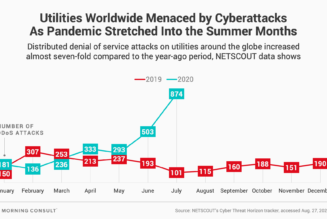The Central Bank of Kenya (CBK) has pressured Safaricom into dividing its dividend payouts in order to “shield the weakening shilling when the telecommunications firm seeks dollars for repatriation to foreign investors”, reports Business Daily.
Kenya’s local currency has faced immense pressure in recent months following the collapse of the tourism sector due to the COVID-19 pandemic.
According to people familiar with the matter, the CBK’s push is one of the “key factors for the firm to break its tradition of making a single dividend payment in August or September” – this comes after the telco announced its first-ever interim dividend of Sh0.45 in February.
“Safaricom has to buy dollars from the market then repatriate the dividends. The dollar demand associated with this dividend payout is usually high. So this year CBK forced Safaricom to split the dividend to save the shilling from weakening,” says a banker who wished to remain anonymous.
“Safaricom’s growing dividend payout is now rattling the CBK. The CBK wants to avoid a repeat of last year’s pressure on the shilling when Safaricom went to the market for about $250 million to repatriate dividends.”
The telco is expected to reveal the final dividend once the results for the year ending March have been announced.
Calls for Safaricom to Share Telco Infrastructure by Kenya Competition Authority
The Competition Authority of Kenya (CAK) has approached Parliament with new laws that would require the country’s telco’s – mainly Safaricom – to share their private infrastructure on a commercial basis.
“The authority’s view is that ab initio infrastructure provisions in the sector should have been separated from the mobile network operators. Primarily regulations should have been developed to ensure that third parties provide the infrastructure. Unfortunately, this did not happen,” says CAK Director-General, Francis Wang’ombe Kariuki.
“It is with this reality that we opine regulations should be promulgated and enforced in regard to infrastructure sharing on a commercial basis and in case of dispute, the sector regulator [Communications Authority of Kenya] may act as the arbiter.”
According to Business Daily, Safaricom has the broadest national coverage, was the first to launch the cutting-edge 5G technology and has been spending more than Sh30 billion each year on its infrastructure – more than any of its competitors.







